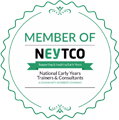Blog
The New Educational Inspection Framework My take on it.
24 July 2019
The New Inspection Framework is out and we are all caught up in the whirlwind of what has changed. Many are in a panic over the new terminology, new categories of assessment, and wondering if we really can use less paperwork and analysis.
I’m looking at it differently. How can this play to our strengths? Does this play to our strengths? I believe it can. Safeguarding is still a priority, so nothing new there. Leadership and management is still expected to be key to success. There’s no suggestion of dropping any standards, high standards and high quality are as important as ever.
So, why do I think this could play to our strengths. The framework is all about what we hold dear. The children first and foremost! How do we get there?
• Through our ethos, values and pedagogy.
• The theories we follow, the way we believe children flourish personally and develop rapidly through those awe and wonder activities we provide.
• Through knowing our children really well. Where they were when they started with us, where they are now and where we intend to take them on their learning journey
• What makes our children tick. What is it that makes them the unique individual they are?
• How we support the vulnerable children, those with special needs and/or disabilities, and those disadvantaged children whose families may need more support and their children need more meaningful learning experiences.
• We strive to improve experiences for our children all the time!
Why are we getting worried? remember the EYFS is the same.
A few newish concepts are there to get our heads round. We have to think Learning intention, implementation, and impact. We also have to look into the term Cultural Capital. These seem the two main sticking points. I would argue, we do these already if we follow all those bullet points.
Gill Jones ( Ofsted’s Deputy Director of Early Education) also talked passionately about rhymes and books increasing vocabulary and its impact on children’s future success. When I talked to my teams about this they said if they hadn’t read a book for a while the children usually put a book in our lap (or tap us on the head with a book!) wanting a story.
As a setting we have already cut down paperwork. Laura Henry’s Keep it Simple Planning©? set us in the right direction (thanks Laura). I’ve never insisted on lots of observations. I’ll be taking my foot of the pedal a little bit with tracking, especially group and cohort tracking. However we still need to know that our children are progressing. Our time could be better spent in the process of helping them progress rather than obsessing about tracking charts.
So far, hopefully, so good. Can we chat about all these things, you bet we can. So when Ofsted come round we will be talking, we will be discussing, we will be showing off all that we do. We may not be looking at tracking (phew!) but we will be talking about progress and how we achieve fantastic learning outcomes. Managers will be showing them how we safeguard children, how we help staff develop and encourage them to flourish at work.
If your doing things well, keep going. Look at the new framework and look at how it can play to your strengths. Always improve and never stand still! We’ve got this.
Link to Keep it Simple Planning©? http://www.laurahenryconsultancy.com/keep-it-simple-planning/


